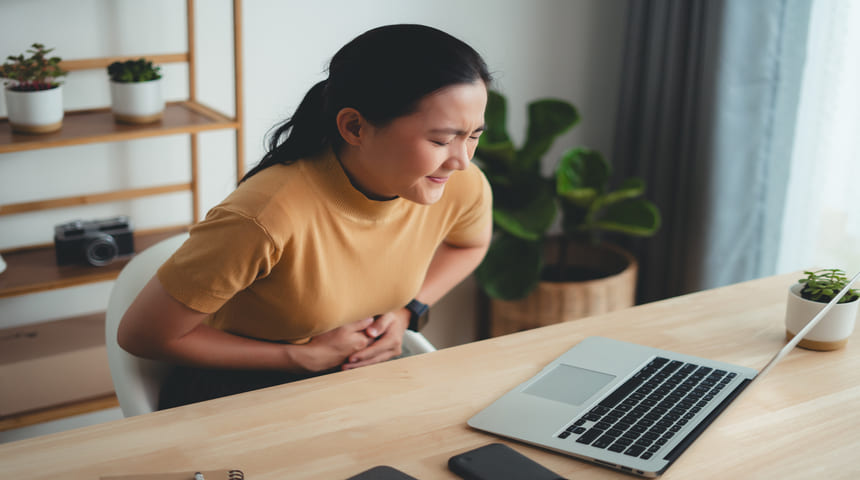If you’re suffering from stomach pain, you might think you have a virus or maybe just ate too much. But there are other symptoms that could point to diverticulitis, a common digestive condition that affects millions of people, particularly those over the age of 40.
But first, what is diverticulitis?
Diverticulitis occurs when small pouches called diverticula form in the walls of the colon and become inflamed or infected. These pouches are often a result of diverticulosis, a condition where weak spots in the colon give way under pressure, creating small bulging sacs. While diverticulosis is usually harmless and symptom-free, diverticulitis can cause significant discomfort and complications.
Symptoms of Diverticulitis
The symptoms of diverticulitis can vary in severity and may include:
- Abdominal Pain
- Fever and Chills
- Nausea and Vomiting
- Changes in Bowel Habits
- Bloating and Gas
If you experience severe symptoms such as intense pain, high fever or rectal bleeding, you should seek medical attention immediately.
What Causes Diverticulitis?
The exact cause of diverticulitis isn’t always clear, but several factors may contribute, including a low-fiber diet, aging, obesity, lack of exercise and smoking.
If your doctor suspects you have diverticulitis, they will start with a physical examination to check for tenderness in the abdomen. You might also expect to have a CT scan, the most common imaging test to confirm diverticulitis; and blood tests to check for infection or inflammation. After your acute symptoms subside, your doctor may also suggest a colonoscopy, which is used to evaluate the colon.
How To Manage Diverticulitis
There are a range of treatments for diverticulitis, depending on the severity of the condition.
Most mild cases can be managed at home with a temporary liquid diet to rest your digestive system and antibiotics if you have an infection. Your doctor might also recommend pain relievers.
For more severe cases, you might have to be hospitalized to receive IV antibiotics and fluids. In rare cases, complications such as abscesses, fistula or perforation might occur, which would require surgery.
If you have frequent episodes of diverticulitis, your doctor might suggest elective surgery to precent an emergency surgery and reduce risks.
How You Can Reduce Your Risk
While you can't always prevent diverticulitis, making lifestyle changes can significantly reduce your risk:
- Eat a High-Fiber Diet. Fruits, vegetables, whole grains, and legumes promote healthy digestion
- Stay Hydrated. Water helps keep stools soft and easy to pass
- Exercise Regularly. This helps maintain a healthy digestive system
- Avoid Smoking and Excessive Alcohol. Both can irritate the digestive tract
- Manage Stress. Stress can impact gut health and exacerbate symptoms
When to See a Doctor
If you have persistent or worsening abdominal pain, fever or changes in your bowel habits, it’s crucial to see a healthcare provider. Early diagnosis and treatment can prevent complications and improve your quality of life.
Having frequent and recurrent episodes of diverticulitis is not normal. In these situations, your doctor likely will suggest surgery, which may help prevent emergency surgeries and the associated risks.
Choose to Stay in Touch
Sign up to receive the latest health news and trends, wellness & prevention tips, and much more from Orlando Health.
Sign Up





